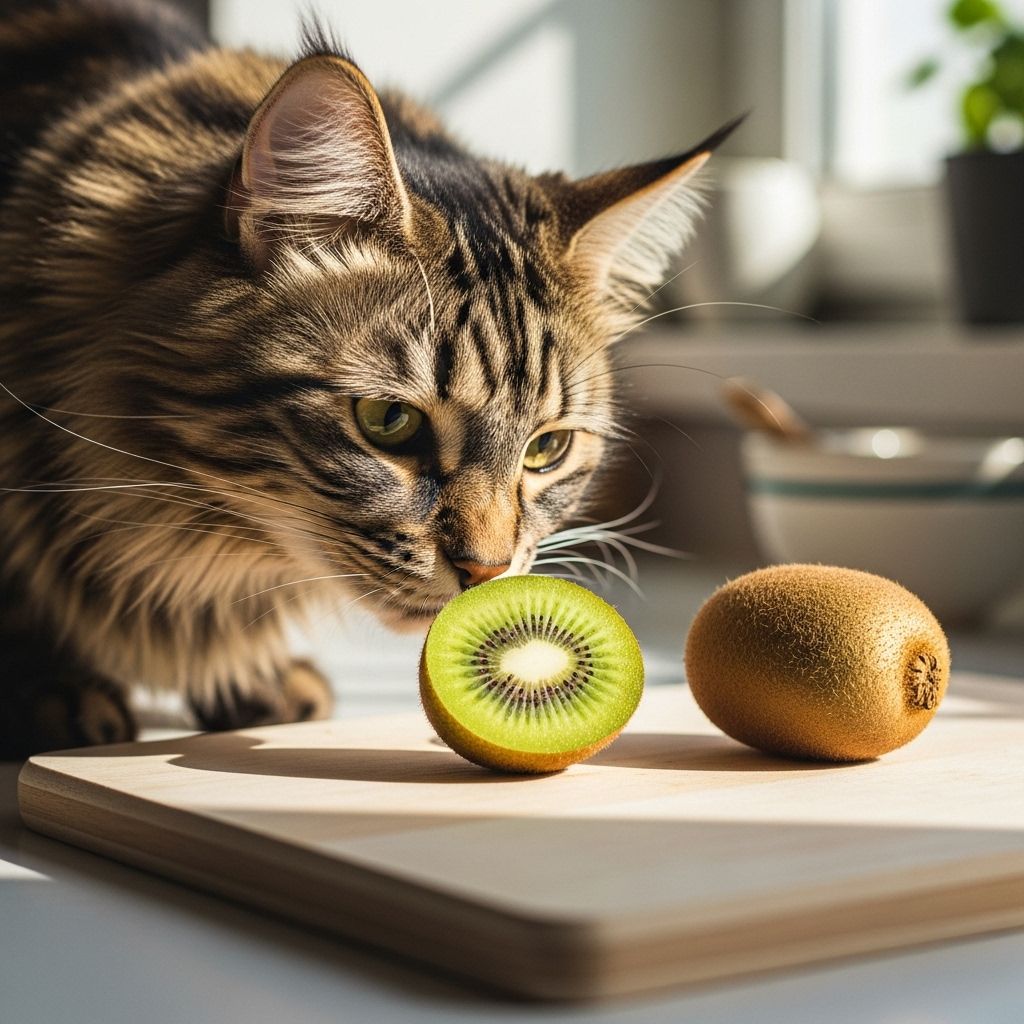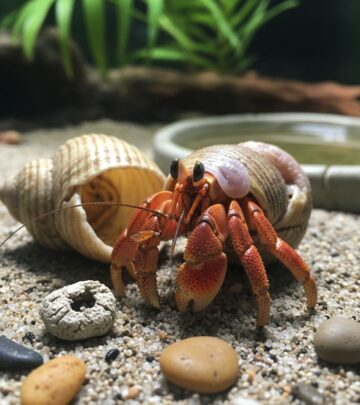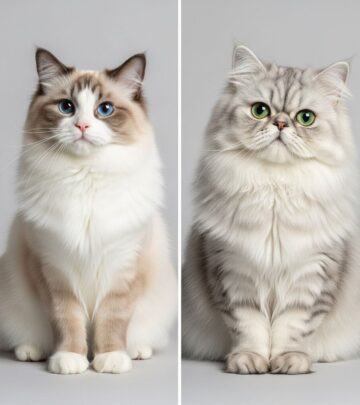Can Cats Eat Kiwi? A Comprehensive Guide to Kiwi for Felines
Explore the safety, benefits, risks, and best practices for cats eating kiwi, as well as essential veterinarian advice and FAQs.

Can Cats Eat Kiwi? Vet-Verified Facts and Guidance
Kiwi is a widely loved fruit renowned for its vibrant flavor, nutritional benefits, and refreshing quality. Yet, for cat owners, the question often arises: Can cats eat kiwi safely? Many pet parents are curious whether sharing a slice of this juicy “superfruit” is harmless, beneficial, or even recommended for their feline companions. This article distills expert guidance, clarifies the health implications, and provides detailed instructions for offering kiwi to cats.
Is Kiwi Safe for Cats?
The simple answer is yes—kiwi is non-toxic to cats and may offer certain health benefits when served properly and in moderation. However, as with any human food, there are important considerations regarding quantity, preparation, and overall dietary compatibility with feline needs.
- Kiwi is non-toxic for cats.
- It should only be an occasional treat, not a dietary staple.
- Proper preparation is essential to avoid adverse reactions.
- Excessive kiwi intake can cause digestive issues due to its sugar and certain enzymes.
Potential Benefits of Giving Kiwi to Your Cat
While cats are obligate carnivores (meaning their ideal nutrition comes from animal proteins and fats), some fruits like kiwi can contribute additional nutrients. If given occasionally and in small amounts, kiwi may provide:
- Dietary fiber: Supports regular digestion and may alleviates issues like mild constipation.
- Calcium and Potassium: Important for nerve, muscle, and bone function.
- Vitamin C and K: While cats synthesize vitamin C themselves, small additional amounts may offer minor antioxidant effects.
- Hydration: Kiwi is high in water content, helping to keep cats hydrated, especially for those reluctant to drink water.
- Antioxidants (lutein & zeaxanthin): May support overall cell health.
Table: Nutrient Highlights of Kiwi for Cats
| Nutrient | Potential Benefit for Cats |
|---|---|
| Dietary Fiber | Aids digestion, may prevent minor constipation |
| Calcium, Potassium | Supports muscle, nerve, and bone health |
| Vitamin C, K | Antioxidant properties, supports immune health |
| Water Content | Contributes to hydration |
| Antioxidants | Helps fight cellular oxidative stress |
Potential Hazards and Risks of Giving Kiwi to Cats
Not all aspects of kiwi are beneficial for cats; potential hazards mostly arise from excess quantity, improper preparation, or a cat’s specific dietary sensitivities. Consider the following points before offering kiwi to your feline:
- High Sugar Content: Kiwi contains about 9 grams of sugar per 100 grams, more than a cat’s digestive system is built to handle. Over time, too much sugar predisposes to obesity, diabetes, and even gastrointestinal upset.
- Carbohydrate Load: Related to the sugar issue, high-carb fruits are generally not recommended for cats on a regular basis.
- Actinide Enzyme: This enzyme can break down proteins and is what gives kiwi its “meat-tenderizing” property. In sensitive cats, it may irritate the mouth or gut and, in rare cases, act as an allergen.
- Allergic Reactions: Symptoms may include vomiting, diarrhea, itching, or swelling of the mouth—always consult a veterinarian if these arise.
- Choking Hazard: The furry skin and seeds can be difficult to chew or digest—never serve kiwi whole or unpeeled to cats.
- Digestive Upset: Even a small amount can trigger stomach upset in some cats, usually presenting as vomiting or loose stools.
Which Parts of Kiwi Should Cats Avoid?
Skin and seeds should always be removed. The skin is not only a choking hazard, but its fine hairs can irritate a cat’s mouth and digestive tract. Seeds, while typically small, add unnecessary risk and should be avoided in cat treats.
Feeding Guidelines: How to Serve Kiwi Safely to Cats
To minimize risks and ensure your cat has a positive experience when sampling kiwi, follow these veterinarian-recommended steps:
- Wash the kiwi thoroughly to remove any pesticides or chemicals from the surface.
- Peel the skin completely—do not offer any of the fuzzy surface to your cat.
- Remove seeds to prevent possible choking or intestinal irritation.
- Cut into small, bite-sized pieces to match your cat’s mouth size.
- Offer only 1–2 pieces at a time, and only once or twice per week as a maximum.
- Monitor closely for any adverse reactions (digestive or allergic) after offering kiwi.
- Consult your veterinarian if you notice any vomiting, diarrhea, or swelling around the mouth after consumption.
How Much Kiwi Is Too Much?
Moderation is key when offering any treat outside of a cat’s balanced diet. For kiwi, the general guideline is:
- 1–2 small pieces (about the size of a grape) per serving.
- Only once or twice weekly to avoid overloading your cat’s digestive system with sugar or fiber.
- Treats should never exceed 10% of daily caloric intake.
Why Some Cats are Attracted to Kiwi
Cats, unlike humans, do not possess taste receptors for sweetness, so their interest is generally unrelated to flavor. Instead, cats might:
- Be intrigued by the texture or smell of the fruit.
- Exhibit curiosity because kiwi is new or different from their typical fare.
- Seek to mimic owner behaviors—as social animals, cats often want to share in experiences with their humans.
However, not every cat will be interested in kiwi, and rejection of the fruit is completely normal.
What to Watch for: Signs of Kiwi Intolerance
It’s important to keep an eye out for possible signs that your cat is not tolerating kiwi well:
- Vomiting or diarrhea
- Drooling or oral irritation
- Itchy or inflamed mouth, tongue, or gums
- Changes in appetite or activity level
- Unusual behavior after eating
If you notice any such symptoms, cease feeding kiwi immediately and consult your veterinarian.
Kiwi in Context: Comparing to Other Fruits
Not all fruits are safe for cats. While kiwi is generally safe with proper preparation, some fruits are strictly off-limits due to toxic compounds:
- Grapes and raisins — toxic to cats (and dogs)
- Citrus fruits (oranges, lemons) — may cause vomiting, diarrhea, and central nervous system depression
- Cherries — contain cyanogenic glycosides, which are toxic
Should Cats Eat Fruit at All?
For most cats, fruit is neither necessary nor recommended as a dietary staple. Cats are obligate carnivores and derive their nutrition best from meat sources, but occasional fruit treats like kiwi can be a harmless source of moisture and fiber.
- Never introduce fruit as a substitute for regular meals.
- Always consult a veterinarian before introducing new foods, especially for cats with sensitive stomachs or metabolic issues.
Frequently Asked Questions (FAQ)
Can cats safely eat kiwi?
Yes—kiwi is non-toxic to cats and is safe if served in small quantities, thoroughly peeled, seeded, and monitored for any signs of adverse reactions.
What are the health benefits of feeding cats small amounts of kiwi?
Kiwi provides dietary fiber, potassium, calcium, some vitamins, antioxidants, and extra hydration, which can support digestion and cell health. However, these are supplementary, not essential to your cat’s diet.
How should kiwi be prepared for cats?
Wash, peel, and seed the kiwi, then cut it into small, bite-sized portions. Never serve the skin or large chunks to avoid choking and oral irritation.
How often can I give my cat kiwi?
Limit kiwi treats to 1–2 small pieces no more than once or twice a week. Never let treats comprise more than 10% of daily calories.
Why might my cat show interest in kiwi?
Cats may be drawn to the fruit’s texture, smell, or novelty. They do not taste sweetness, so their curiosity is unrelated to flavor.
Are there risks to feeding my cat kiwi?
Yes. Potential risks include digestive upset, allergic reactions, and oral or digestive tract irritation from the skin’s fine hairs. High sugar content can pose metabolic risks if fed in excess.
What signs indicate my cat cannot tolerate kiwi?
Vomiting, diarrhea, lethargy, oral swelling, drooling, or appetite loss after consuming kiwi are signs to discontinue immediately and consult your veterinarian.
Veterinarian Advice and Final Thoughts
While kiwi can be safely offered as an occasional treat, the foundation of a cat’s nutrition should always remain animal-based proteins and fats. Fruits like kiwi must only be an infrequent indulgence, thoroughly prepared and closely monitored for any negative effects. Always consult with your veterinarian before introducing any new treat—especially for cats with special dietary needs, underlying conditions, or those on prescription diets.
- Always introduce new foods slowly and in small amounts.
- Monitor for any digestive or behavioral changes after new treats.
- Keep harmful fruits (grapes, citrus, cherries) away from your cat at all times.
- If you detect any sign of intolerance, halt exposure and seek veterinary support.
Sharing kiwi with a cat can be a fun bonding experience, but should always be guided by caution, moderation, and veterinary advice.
Read full bio of Sneha Tete












